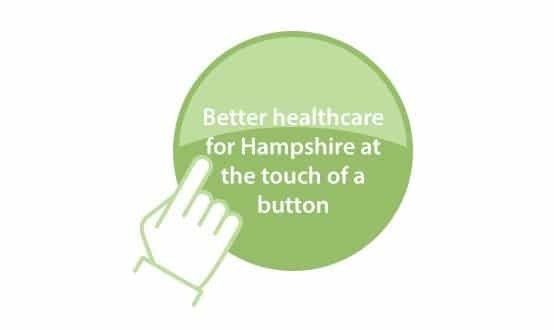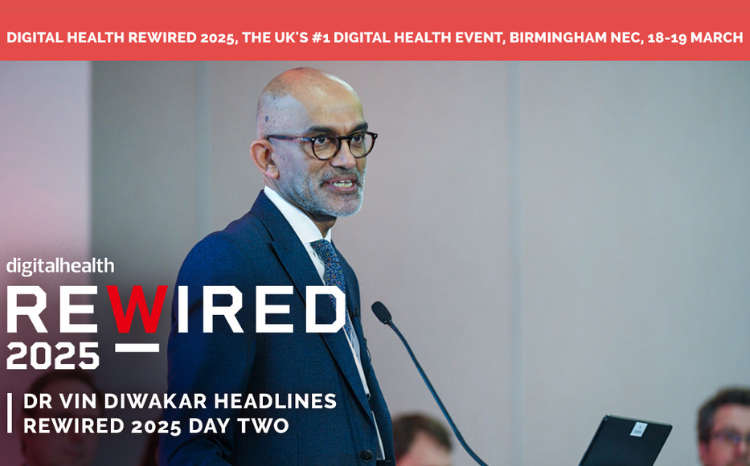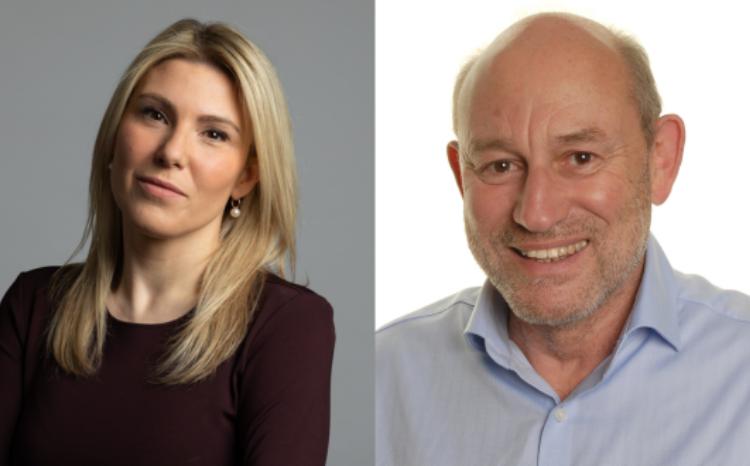Loved by the good
- 2 July 2014

Dr Amir Mehrkar has a unique way of describing the Hampshire Health Record. He sees it as a Robin Hood-type scheme; one that takes from the information rich and gives to the information poor.
Whether this makes him the man in tights himself is not entirely clear, but it is a livelier analogy than most in the healthcare IT world.
Dr Mehrkar is the chief clinical information officer for the Hampshire Health Record project, which wants “to deliver improved integrated patient care by enhancing information sharing across health and social care settings in Hampshire.”
He explains that the ‘information poor' in his Robin Hood analogy are those working in the acute sector; and it is therefore hospital doctors, nurses and pharmacists who use the record most. "GPs generally have a rich source of information; so the [record] for them is about filling in gaps,” he adds.
However, single sign-on access is being introduced for GPs using Emis systems "imminently". The users of INPS systems will follow, and it is hoped this will boost the record’s use in primary care.
Almost a decade in the making
The Hampshire Health Record is one of the longer-running attempts to create a shared care record for an English healthcare community.
The project started in 2005, and is presently led by NHS South Commissioning Support Unit, working with clinical commissioning groups, hospital trusts and local authorities.
The record is built on Graphnet technology and includes care encounters, GP diagnoses, blood and radiology results, current medication, allergies, clinic letters, discharge information, and some social care information.
An impressive 87m documents have been shared so far, and the record has around 8,500 unique users.
Dr Derek Waller, the deputy medical director of University Hospital Southampton NHS Foundation Trust, tells EHI that getting single sign-on was key to increasing usage at his organisation.
The record has been embedded in Southampton's electronic patient record system since 2012 and uses the NHS Number to identify patients.
"We believe it's safer and that it’s time saving,” he tells EHI. “We believe that we are able to offer better, more appropriate management at the outset than we would be able to do if we couldn't access this information.”
Dr Waller says he always checks the Hampshire Health Record when he sees a new outpatient in clinic, because he often receives incomplete referral letters.
“People can’t remember what drugs they are taking,” he says, by way of example. “[Traditionally], I would get a nurse to phone the surgery. Now, I just click on to the record and the information is there – providing the record is up to date.”
Information campaigns were run when the record was created, and patients must consent to their record being used at the point of care. "I have never been refused access; most patients say 'why are you asking?'" Dr Waller says.
No more flying blind
Over in the trust’s pharmacy department, admissions pharmacist David Young also needs to work out what medicines patients have been taking at home when they are admitted to hospital.
He says very few people arrive with a comprehensive list, so his staff used to spend hours ringing GP surgeries and asking them to fax over the information.
If a patient has a Hampshire Health Record, the same information can be obtained in minutes. In addition, the record is available at weekends, when most GP surgeries are shut – vital, given that the hospital is trying to improve the service it offers at weekends.
"If you are making decisions about changing medicines without accurate information you could make decisions that are wrong. You could start something that was deliberately stopped in primary care," says Young.
"It definitely makes our job easier and it makes it safer for patients because we are making decisions about medicines based on accurate information."
Dr Michael Ruse, who works for Southampton CCG on integrated personal care, and who does a lot of out-of-hours work, feels out-of-hours services need to raise these kinds of benefits with their clinicians.
Over a drink at Southampton General’s Costa Coffee outlet, he says too many OOH clinicians are "going blind" into situations when treating patients in their homes.
"Because we have to practise safely, very often we end up admitting someone," he explains. "If we had all the information available, we could put other things in place."
The Hampshire Health Record was embedded within the clinical system Adastra, which is used by local OOH doctors; but the link is broken. The team is working to repair the link and also talking with CCGs about upgrading the record so it can be used on iPads.
Proving it works
The project has run some more formal studies of the benefits of shared record usage. One preliminary study covered a nine-month period in 2012 and examined A&E and admission activity in both Southampton and Portsmouth.
It found that one third of those admitted as inpatients had their Hampshire Health Record checked. Access to records was correlated with patients with more complex conditions and with more investigations and treatments being carried out.
For clinicians that sought information and found it there was a statistically significant correlation with a reduction in inpatient bed days; on average these dropped from 12 to 10.3. There was also a significantly reduction in pathology and imaging tests, as clinicians could view results from other providers.
This kind of evidence can help to persuade clinicians to use the record, and finance directors to loosen the purse strings. "The next step is working with Southampton University to repeat the analysis and get the results published," Dr Mehrkar says.
More demands for more information
Of course, there have been stumbling blocks. Dr Waller is frustrated that the record does not draw information from more providers – such as mental health – and that when he goes looking for a patient's record he can find no GP information in about one third of cases.
This is mainly down to issues with the use of TPP's SystmOne system by surgeries in the area, as the company does not provide a feed to the record at the moment. Dr Waller warns this has a knock-on effect on usage, as doctors frustrated once may not try again in the future.
Dr Mehrkar says the Hampshire Health Record team has been working hard with the company, which has agreed to make sure that SystmOne patient data is visible to shared record users, exploring both daily data extracts and real-time API routes.
"We have done some really positive collaborative work with TPP,” he says. The vision is to work towards a real-time set-up for all GP systems; at the moment, information from Emis and INPS systems is also uploaded nightly.
Overall, he senses a new “urgency” within the NHS to share information, both to improve efficiency and to boost quality of care. And this sense of urgency is spreading to social care, as the government puts more integrated working back on the agenda.
A social care pilot, involving Hampshire County Council, gave 500 social workers access to a pre-defined set of codes in the record, such as care plans and GP information. The trial went so well that a full roll-out across the council started at the end of April.
Access is provided on a consent-to-view model. GPs can choose to opt out of sharing their information with social care, but the Hampshire Health Record team is working with CCGs to encourage them and their members to get behind the scheme.
Unfortunately, it is having to do this against a back-drop of outrage about the national care.data scheme; which aims to link hospital and GP data and release it to researchers.
Dr Mehrkar acknowledges that it can be difficult for patients to understand the difference between the three different data sharing initiatives in the region; which is also rolling out the NHS Summary Care Record.
He says the controversy and confusion around care.data has led to an increased number of inquiries to the Hampshire Health Record team and to people asking to see their own records.
However, there has been no significant increase in opt-outs; which have held steady at around 8,600 out of 2m people. He believes that if the shared record’s consent at the point of use model is explained properly, few people have a problem with it.
Help on offer
Anne Meader is the patient representative on the Hampshire Health Record programme. By phone, she tells EHI that more could be done to make the record more comprehensive and encourage its use.
"As a patient and carer, I know we could do so much more with the record than we do and I don't want to lose the opportunity to make it something brilliant for patients," she says. "It would be a crime not to use it."
Meader is pushing for patients to have access and the ability to upload their own information. "I know initially there won't be a lot of people who will do that, but we have to start to make that happen," Meader explains.
Dr Mehrkar confirms that his aim is to make it possible for patients to log into their own account, to view their shared record, and to be able to set personal profile preferences – such as where they would like to die, if they approaching the end of their life.
As EHI’s series on information sharing across healthcare communities has already shown, there is a lot of work going on; and a lot of different approaches taken.
Dr Mehrkar does not want other areas trying to achieve what the Hampshire Health Record set out to achieve to ‘reinvent the wheel.’ Instead, he’s keen to reach out with his experience; and says his team is always happy to help others.
"We welcome people approaching us to learn about what we are doing. It helps us to learn about how to do things better, because we are all learning together," he says.




